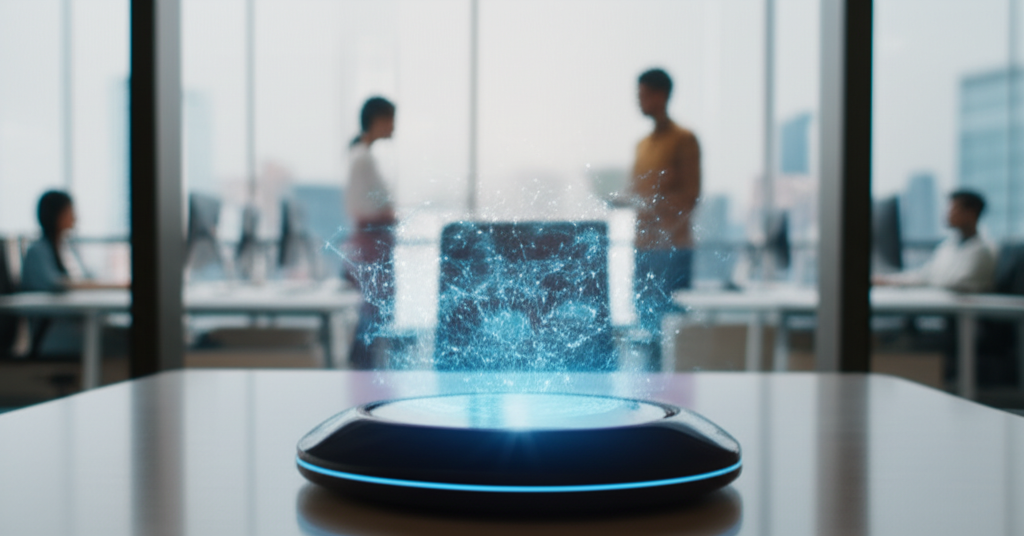
Meta description: Explore the future of work with AI Agents. Discover how these intelligent digital assistants will revolutionize industries by 2025.
The Dawn of Autonomous AI Agents
The world is rapidly evolving, and at the forefront of this change are AI Agents. These sophisticated digital entities are poised to redefine how we work, interact with technology, and conduct business. Imagine a workforce where routine tasks are automated, complex problems are solved independently, and innovation is driven by intelligent collaboration between humans and machines. The reality of AI Agents is closer than you think, and by 2025, their impact will be undeniable.
The rise of these autonomous entities marks a significant shift from traditional AI, which often requires human oversight and specific programming for each task. AI Agents, on the other hand, can learn, adapt, and act independently, making them invaluable assets across various industries.
Understanding the Core of AI Agents
At their core, AI Agents are designed to perceive their environment, make decisions, and take actions to achieve specific goals. Unlike traditional software programs that follow pre-defined instructions, these agents leverage machine learning, natural language processing, and other advanced AI techniques to operate autonomously.
Here’s a breakdown of the key components that define AI Agents:
– Perception: Agents gather information from their environment through sensors or data inputs.
– Reasoning: They analyze the information to understand the current state and predict future outcomes.
– Decision-Making: Based on their reasoning, agents choose the best course of action to achieve their goals.
– Action: They execute the chosen actions, which can range from simple tasks like sending an email to complex operations like managing a supply chain.
– Learning: Agents continuously learn from their experiences, improving their performance over time.
How AI Agents Differ from Traditional AI
While both AI Agents and traditional AI aim to automate tasks and improve efficiency, there are key differences that set them apart. Traditional AI often focuses on narrow, specific tasks, requiring extensive programming and human intervention. AI Agents, however, are designed to be more adaptable and autonomous, capable of handling a wider range of tasks with minimal human input.
Here’s a table highlighting some key distinctions:
| Feature | Traditional AI | AI Agents |
| ———– | ———– | ———– |
| Autonomy | Limited | High |
| Adaptability | Low | High |
| Task Scope | Narrow | Broad |
| Human Intervention | High | Low |
| Learning | Limited | Continuous |
The Transforming Power of AI Agents in Industries
The application of AI Agents spans across numerous industries, each experiencing unique benefits from their integration. From healthcare to finance, these intelligent assistants are revolutionizing how businesses operate and deliver value.
– Healthcare: AI Agents are assisting doctors in diagnosing diseases, personalizing treatment plans, and managing patient care. They can analyze medical images, predict patient outcomes, and even provide virtual consultations.
– Finance: In the financial sector, AI Agents are being used to detect fraud, manage investments, and provide personalized financial advice. They can analyze market trends, identify risks, and automate trading strategies.
– Manufacturing: AI Agents are optimizing production processes, predicting equipment failures, and managing supply chains. They can monitor equipment performance, identify potential issues, and schedule maintenance proactively.
– Customer Service: AI Agents are providing 24/7 customer support, answering queries, and resolving issues. They can understand customer needs, provide personalized recommendations, and escalate complex issues to human agents.
“AI agents will revolutionize how businesses operate by automating complex tasks, enhancing decision-making, and improving customer experiences,” says a recent report by Gartner. This sentiment is echoed across industries, as businesses recognize the potential of AI Agents to drive innovation and improve efficiency.
Preparing for an AI-Driven Future
As AI Agents become more prevalent, it’s crucial for businesses and individuals to prepare for the changes ahead. This includes investing in AI education, developing new skills, and adapting business processes to leverage the capabilities of these intelligent assistants.
Here are some key steps to consider:
– Invest in AI Education: Provide training and development opportunities for employees to learn about AI and its applications.
– Develop New Skills: Focus on developing skills that complement AI, such as critical thinking, creativity, and emotional intelligence.
– Adapt Business Processes: Re-evaluate existing business processes and identify opportunities to integrate AI Agents for improved efficiency and productivity.
– Embrace Collaboration: Foster a culture of collaboration between humans and AI Agents, recognizing that the best outcomes are achieved when humans and machines work together.
Challenges and Considerations of AI Agents
While the potential benefits of AI Agents are significant, it’s important to acknowledge the challenges and considerations that come with their adoption. These include ethical concerns, data privacy issues, and the need for robust security measures.
– Ethical Concerns: Ensuring that AI Agents are used ethically and responsibly is paramount. This includes addressing issues such as bias, fairness, and transparency in AI decision-making.
– Data Privacy: Protecting sensitive data is crucial when using AI Agents. Businesses must implement robust data privacy measures to comply with regulations and safeguard customer information.
– Security Measures: AI Agents are vulnerable to cyberattacks, making it essential to implement strong security measures to protect them from malicious actors.
– Job Displacement: Addressing the potential for job displacement is important. This includes providing retraining and upskilling opportunities for workers who may be affected by AI automation.
Addressing these challenges proactively will ensure that AI Agents are used in a way that benefits society as a whole.
Embrace the Power of AI Agents
The era of AI Agents is upon us, promising a future where work is more efficient, innovation is more rapid, and possibilities are limitless. By understanding their capabilities, preparing for their integration, and addressing the associated challenges, we can harness the full potential of these intelligent assistants. The AI Agents will reshape industries, redefine job roles, and ultimately, transform the way we live and work.
For more insights or collaboration opportunities, visit www.agentcircle.ai.






